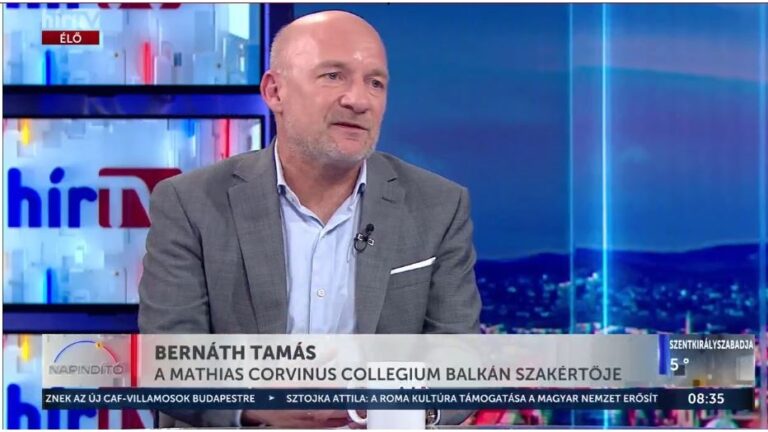Poland and Israel have recently expelled each other’s diplomats over a new law regarding the restitution of properties seized by the state during the Communist era. What is at the bottom of this dispute and is there a better model to solve it?
Before the tragedies of the Second World War, Poland was home to Europe’s largest Jewish community—numbering nearly 3.5 million people—the bulk of whom were killed by the occupying Nazi regime with only a few tens of thousands being lucky enough to be able to flee the country for the US and elsewhere. The deserted homes and properties of the survivors were seized by the Nazis and, after the war ended, the communists.
After the fall of the Soviet Union and the Warsaw Pact, the new, democratic Poland finally offered the possibility of restitution of the seized properties to the survivors and their family members as a token of justice to those persecuted by the previous regimes. But even though individual cases of claimants could have been resolved in courts, no comprehensive law was ever passed by Warsaw to regulate the process, precisely because of the high number of properties in question and the complexity of the whole issue.
Now, despite strong warnings from the United States and Israel, Poland passed a law imposing a thirty-year moratorium on all property restitutions regarding the communist era. The law, of course, drew harsh response from Israel, and the ensuing dispute culminated in Israel recalling its top diplomat from Poland for an indefinite period and stating that it would not send a new ambassador either. Foreign Minister Yair Lapid also said that he ‘recommends that the Polish ambassador to Israel prolong his vacation in his country’, and in the meantime educate the Polish people about the fact that the Israelis ‘will not tolerate contempt for the memory of the victims and the memory of the Holocaust’.
So, what are the arguments in this new diplomatic dispute? Is the law really anti-Semitic as Israel claims, or has nothing to do with Jews as Warsaw does? As usually, the answer lies somewhere in the middle.
The Polish government’s stance is that the moratorium affects every property seized by the communist government during its four decades of existence, regardless of the previous owners’ religion of nationality
To put it plainly, it is not anti-Semitic as it does not target Jews over others, but handles all cases equally. To counter this, Israel says that most of the properties in question belonged to Jews that were killed or forced to flee, so the law disproportionately impacts the survivor community, making it anti-Semitic plain and simple. To be fair, property restitution to the victims of both Communism and Nazism is indeed an important part of reconciling with the past and dealing justice to those hurt most by the past regimes. So, breaking these processes to a sudden halt like this seems odd at least. Just because it is complicated to rule in certain cases does not justify not doing it at all, so there must be another reason why Warsaw decided to go forward with this new law. And the reason is that, sadly, the whole issue is stained by a history of well-organized criminal groups claiming to represent actual survivors of family members with rightful ownership of these properties obtaining them through fraudulent cases in the courts and evicting the current tenants before selling the buildings to the highest bidders. That is why Polish President Andrzej Duda said that he was convinced that this move will end ‘the era of legal chaos – the era of re-privatisation mafias, the uncertainty of millions of Poles and the lack of respect for the basic rights of citizens of our country. I believe in a state that protects its citizens against injustice’. The problem might seem unusual for most Western countries and Israel, but for East Central Europe this is something that politicians definitely need to look out for. The so-called “restitution mafias” are so widespread in Poland that the new law enjoyed unanimous support from all parts of the political spectrum, and was not at all an exclusively right-wing initiative, which really makes it hard to believe it was conceived with anti-Semitic intentions.
To understand how big of a havoc these criminal groups were wreaking in Poland, I asked a Polish friend, since I could not find any foreign articles to assess the real scale of the situation. What he told me was appalling. He explained that the general consensus among Poles and all Polish parties were that real restitution cases have all but ended some ten years ago and there are hardly any survivors to claim properties in Poland. This means that virtually all new claims these past couple of years have been fraudulent from the start. All, except maybe a few percent, but even the majority of those fall under another unethical category. Those properties, which are claimed by actual (distant) family members of survivors nowadays are the ones that have recently been renovated or rebuilt by the current tenants, and the would-be owners only file their claims after they are approached by sneaky real estate investors, who are looking for an easy benefit from someone else’s hard work.
So, to make it clear, Poland had to weigh what is worse: outlawing restitution for a couple actual Holocaust survivors (at least for the time being), or letting the mafia take away the homes of thousands of hardworking Poles for the possible benefit of a few foreign citizens, who might or might not exist at all. It is clear that there are no right answers in this question. Poland had to solve its problems with the property mafia, but in doing so it is hurting the victims of the Holocaust and Communism while also endangering its ties with the state of Israel. Perhaps, a completely different system could be an answer to this conundrum, like the one in Hungary.
After the fall of Communism, Hungary also offered restitution for the property-owners hurt by Communism and the Holocaust. But after an initial phase of giving back the buildings to the rightful owners, the state moved on from handling individual claimants and instead chose a collective approach. All unclaimed properties were taken into account and the official representatives of each religious communities could choose whichever they want to keep and maintain, giving back the rest into a fund under the supervision of the state, which in turns pays a sizeable yearly contribution to the communities. This way restitution claims among the religious, and especially Jewish victims of the totalitarian regimes of the past no longer fall under the authority of the state, but directly under the organization’s representing the Jewish community. A more direct and transparent approach that could offer a way out for Poland as well, should it choose to implement it in the future.
As a conservative standpoint, justice has to be served to whomever it is due, both to the past victims of the Holocaust and to the would-be victims of the property mafia. The new Polish law imposing a moratorium on restitutions may not be a step in the best direction, but a very much needed step nevertheless. Even if it is hard, I strongly hope Poland will find a way that will benefit for both categories and will protect the interests of all its citizens in the future. As for Israel, it might need to look a bit deeper into what is going on in other countries and think twice before crying anti-Semitism every time it is convenient.








